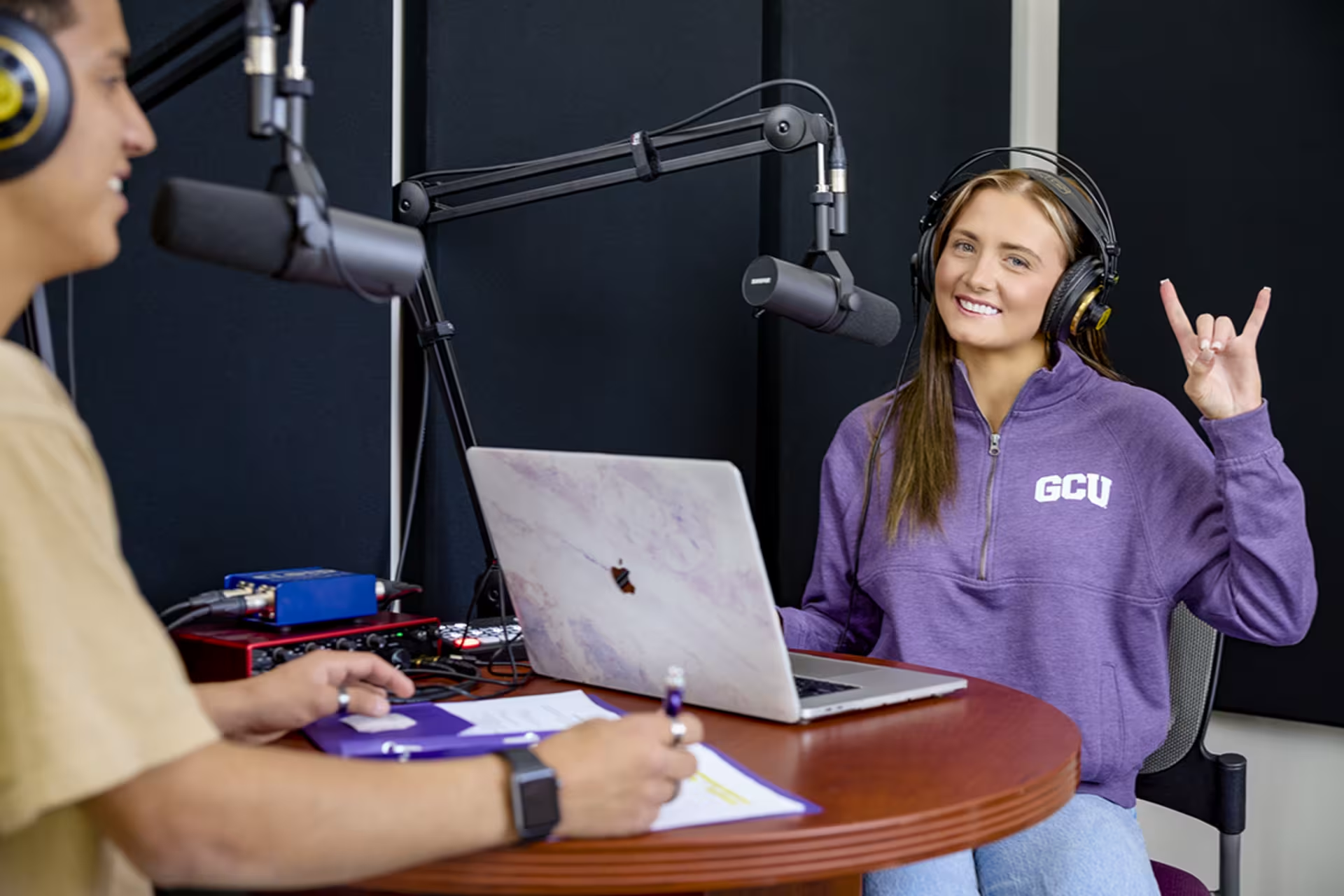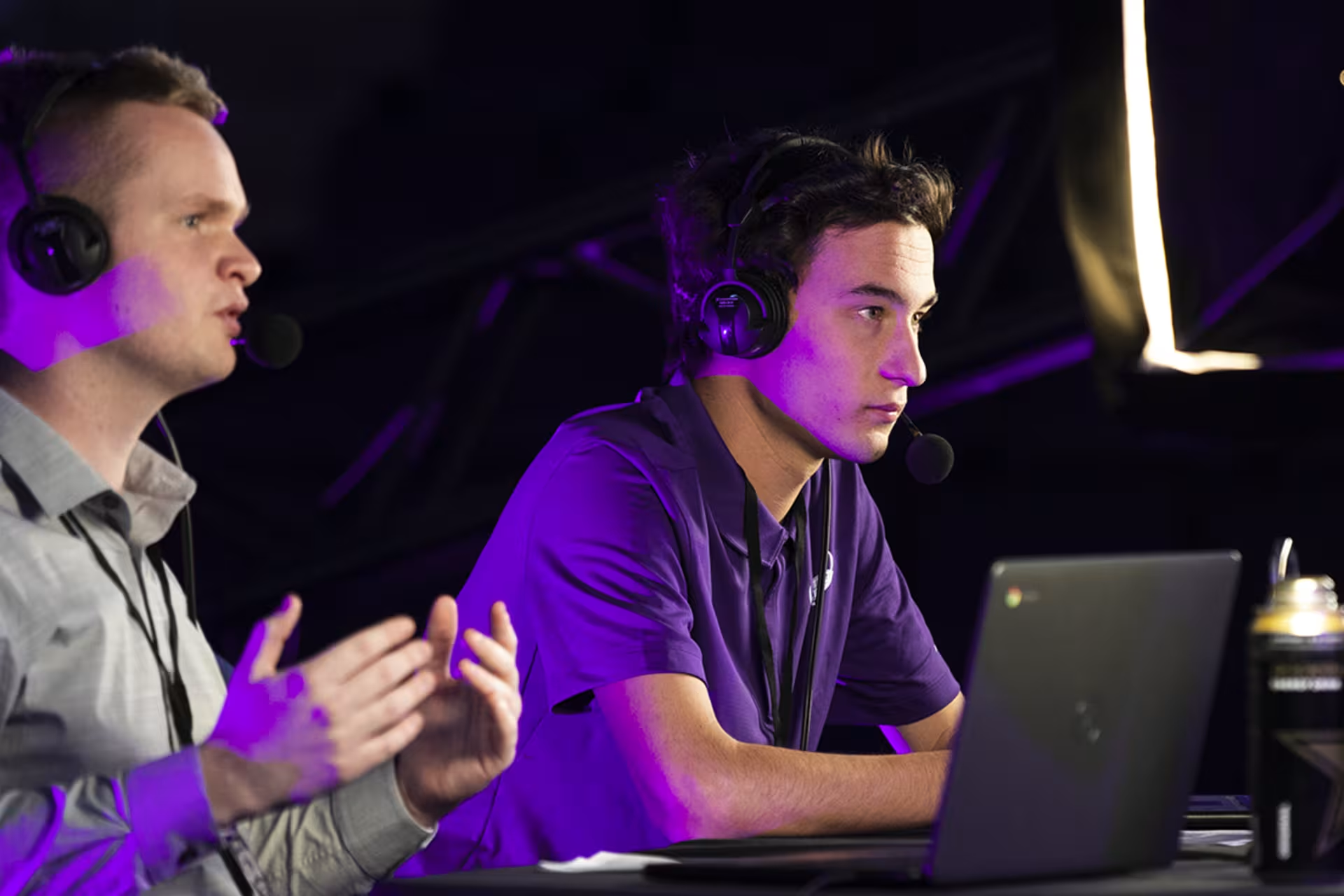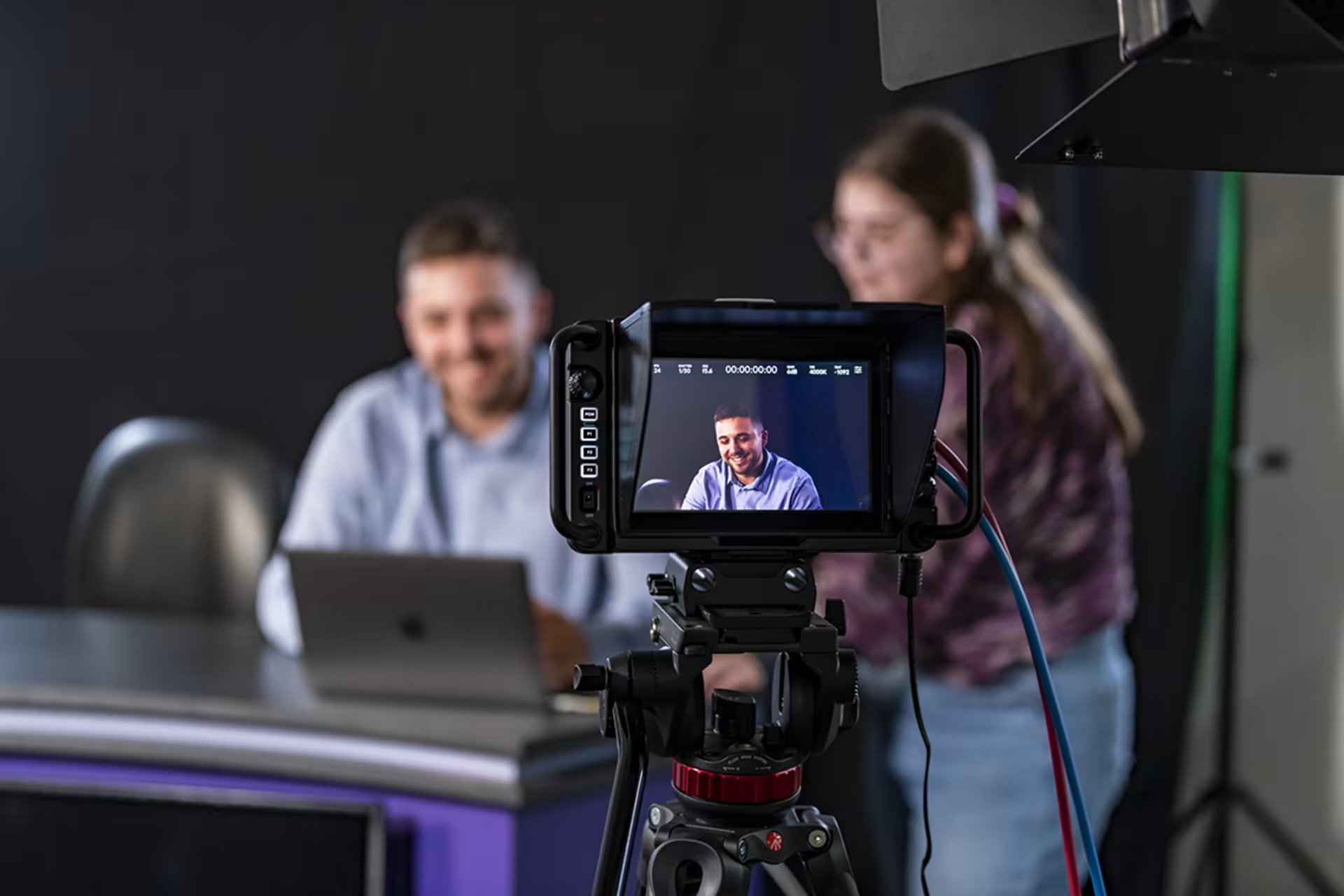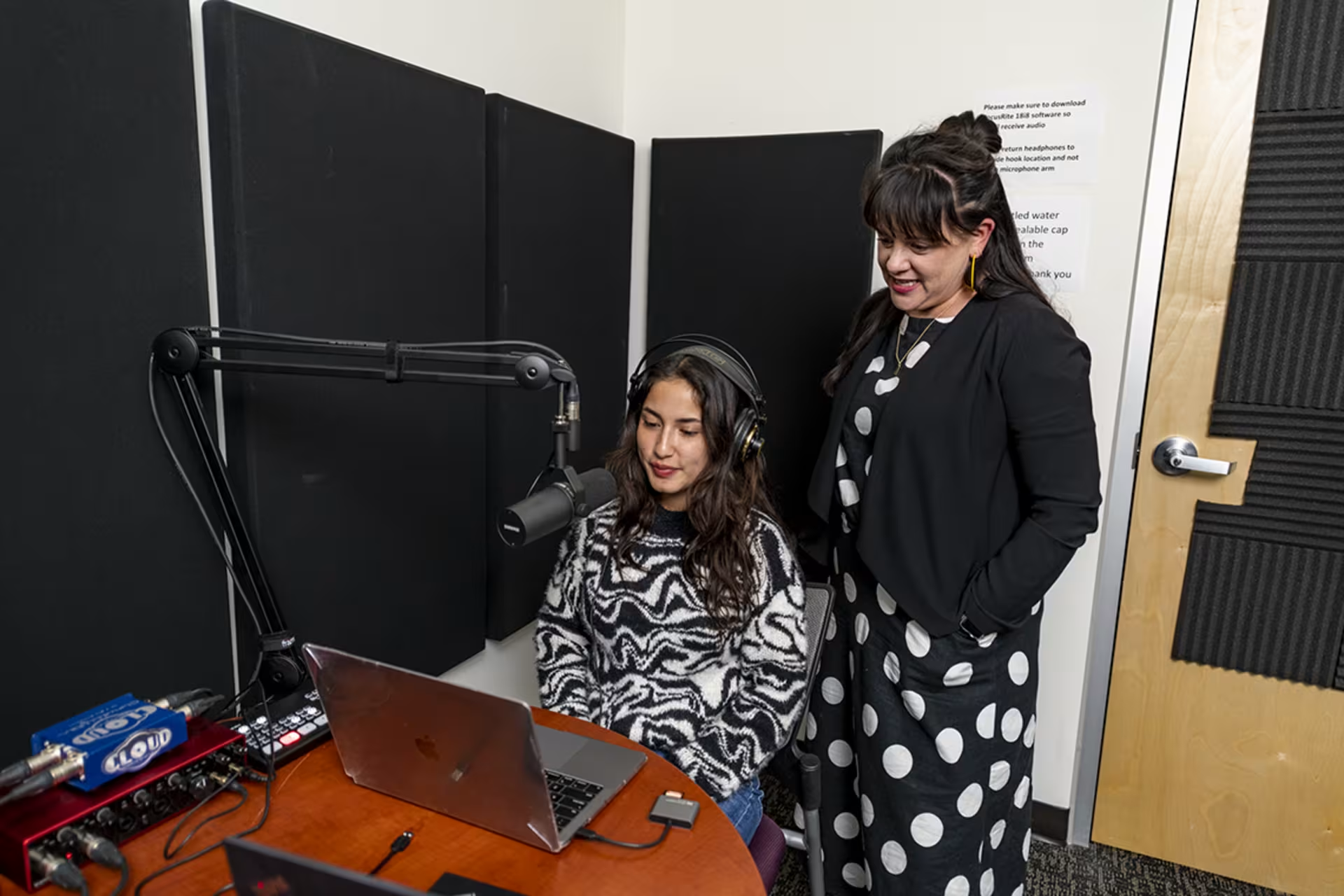
BA in Broadcasting Degree
Shape the Future of the Media Landscape
New technologies and shifting audience behaviors are changing the field of broadcasting. The media industry offers countless opportunities for creative and strategic communicators, spanning traditional radio and television to digital platforms including podcasts and social media. If you have a passion for storytelling, journalism or content creation, consider Grand Canyon University’s BA in Broadcasting.

Campus: $8,250 per semester [More Info]
Up to 90 credits, only 84 can be lower division
Credits: Fill out the Lopes Eval to find out what will transfer
Admission Requirements (Bachelor's)
- 16+ years old
- High School Graduate
- 3.0+ Unweighted GPA
OR 2.5+ Unweighted GPA and
- ACT: 19
- SAT: 1000*
Admission requirements may differ based on degree level, program and modality, or transfer status. Some programs of study may require a higher GPA and/or other qualifying criteria for admission. Please review full admission and program requirements in the University Policy Handbook.
*Math and reading only on a 1600 point scale (test date after 3/1/2016). SAT score of 1380 required for 2400 point scale (test date before 3/1/2016).
Turn Your Passion for Storytelling Into a Powerful Voice
If you are drawn to the power of storytelling and the media’s ability to connect, inform and influence, our bachelor’s degree in broadcasting can help you prepare to navigate a career in journalism, storytelling or digital media. This program can provide a solid foundation in key media concepts, production techniques and ethical communication. This broadcasting degree provides the tools to think critically and create with purpose.
Broadcasting students are encouraged to become skilled communicators and responsible professionals who understand the impact and significance of their words and platforms. With guidance from industry-experienced faculty and a focus on ethical storytelling, you can develop into a media professional with integrity and conviction, ready to contribute positively to the world, bringing both technical skill and moral clarity into the field of broadcasting.
Enroll in GCU’s Online Broadcasting Degree
GCU’s online broadcasting degree offers a flexible path for those interested in exploring the media world while managing work, family or other commitments. Our intuitive learning platform delivers the curriculum, allowing you to study broadcasting theory, digital content creation media writing and communication ethics from virtually anywhere. With asynchronous coursework and access to engaging online resources, you can work toward your academic goals while gaining a foothold in modern media practices.
Whether you want to enter the media industry or enhance your existing knowledge, our online learning format offers the convenience and support to help you pursue your passion.
Coursework to Understand Broadcasting
The Bachelor of Arts in Broadcasting degree is designed to provide students with a strong foundation in the core principles of media production, storytelling and audience engagement. This program offers a blend of theory and practice, equipping students with the tools to understand how modern media operates, while exploring how to create purposeful, audience-focused content across platforms. From the ethical considerations of journalism to the technical skills behind broadcast production, students are encouraged to develop a well-rounded perspective on the role of media in the world.
The program culminates in a broadcasting capstone course, integrating the knowledge and experience gained throughout your studies. You will be able to evaluate and refine your portfolio, explore potential career paths, craft tailored application materials and prepare to present yourself professionally.
Topics and courses students will engage with include:
Reporting and news writing
Podcasting
Digital media and culture
Producing for broadcast
The business of broadcasting
Essential Skills for Broadcasting Professionals
The program promotes collaboration, creativity and critical thinking — essential skills for the content-driven broadcasting environment. Coursework is curated to help students grow creatively and professionally. Students can examine how to craft compelling stories, understand audience behavior and explore a variety of digital and traditional media formats.
You will gain exposure to various broadcasting elements, including:
Career Paths for Broadcasting Degree Graduates

A degree in broadcasting provides the opportunity for graduates to seek professional roles within the media industry. Whether you are interested in traditional formats like television and radio or prefer newer platforms such as podcasts and digital streaming, this program can prepare you for a career in modern media.
Graduates of the BA in Broadcasting program can consider career options that require creativity, communication and production skills.
The possibilities are extensive and include roles such as:
News anchor
Field reporter
Program director or producer
Radio announcer
Video editor
Audio engineer

Pursue Your Bachelor’s Degree at an Accredited University
Grand Canyon University is institutionally accredited by the Higher Learning Commission. Enrolling in GCU ensures you will enjoy a program that meets rigorous academic standards to help you build a solid foundation for a degree in broadcasting.
Frequently Asked Questions
If you are considering enrolling in GCU’s Bachelor of Arts in Broadcasting program, you may have question about how it aligns with your goals. Below are answers to common questions to help you explore your next steps.
Is a broadcasting degree worth it?
What degree do you need to be a broadcaster?
What is the difference between broadcasting and communications?
Program Curriculum
General Education Requirements
Core Courses

Take the next step toward a future in media with a broadcasting degree from Grand Canyon University.
- Indeed. (2025, March 3). How To Become a Broadcast Journalist: Steps and Tips. Indeed.com. Retrieved April 1, 2025.
- CPI Journalism. (2022, Nov. 18). Are Broadcast Communication and Broadcast Journalism the Same? CPIJournalism.org. Retrieved April 4, 2025.



